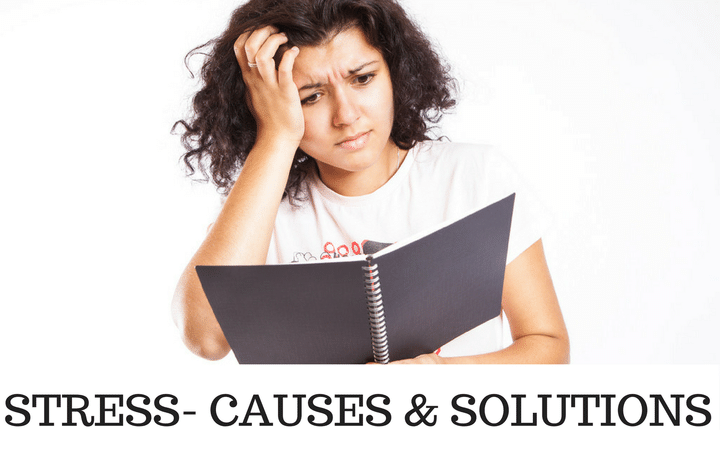Stress- Causes And Solutions!
Stress is an automatic response to psychological threats. It can be in two different ways - the psychological perception of pressure and the body’s response to it. Due to the hormonal changes in the body due to this pressure, the body’s fight or flight response is set in motion.
Stress can be characterized into acute, episodic and chronic. Acute stress is short term stress which does not last long but may have long term effects if ignored. Episodic stress is short term stress but in situations which can be a daily occurrence, such as stressful situations in the workplace. Chronic stress refers to long term stress which has lasted over a long period of time. There are many different causes of stress such as work, relationships, personal appearance, societal norms, bereavement, health worries, major life changes etc. The cause of stress and the degree to which we experience them differs from person to person, with each of us having different levels of tolerance.
Some of the symptoms of stress include increased heart rate, sweating, anxiety, low energy, headaches, insomnia, frequent colds or infections etc. Here are a few ways you can manage stress:
1. Practice deep breathing exercises:
One main symptom of stress is staggered breathing. When we experience stressful situations, we tend to breathe faster and more rapidly. Practicing deep breathing helps you normalize your breathing and bring your heart rate back down to normal.
2. Try progressive muscle relaxation:
This concept requires you to consciously identify all the muscles in your body which are tensing and relax them. In order to do this you will have to first consciously tense the muscles in your body and know what that feels like, then relax them and learn what that feels like.
3. Use guided imagery:
Sit in a quiet place, close your eyes, and try to visualize your ‘happy place.’ This is the place you feel at peace. Imagine the sights, sounds, smells and feel of that place. The next time you feel yourself start to feel stressed try this technique.
4. Make time for hobbies:
We all have so much work to complete in the day or week that we forget to give ourselves some time off. It is important that you take some time off to do things which you enjoy. For example, you may like reading or painting or fishing. Alot a time in the week for you to do these activities. This will help you destress and help put you in a more relaxed state.
5. Be aware of your stressors:
It is important that we identify the things which cause us stress. Once we are aware of our stressors we can consciously make an effort to relax before going into the task. Make a plan before going to tackle the task which is causing the stress.



+1.svg)
